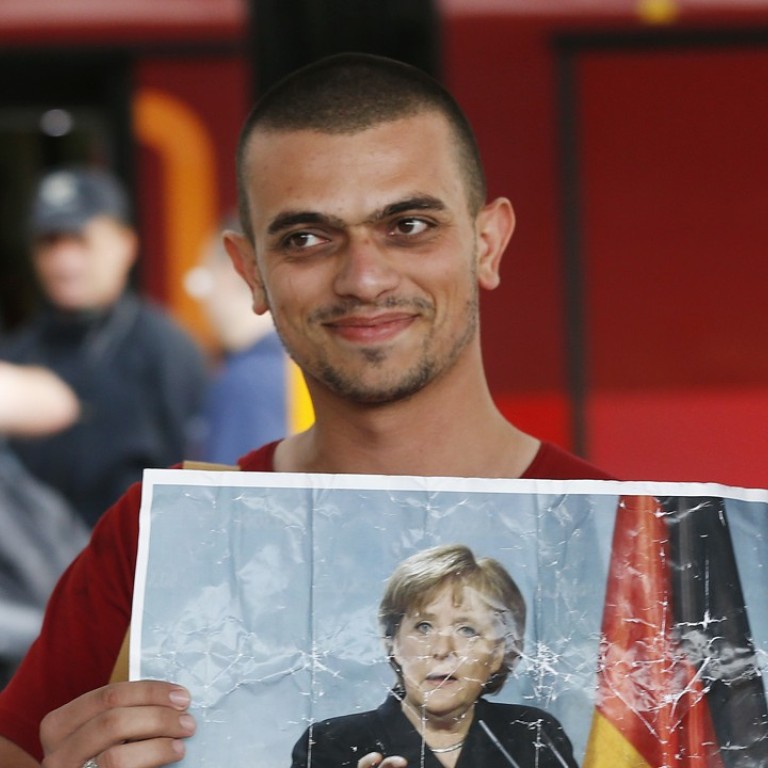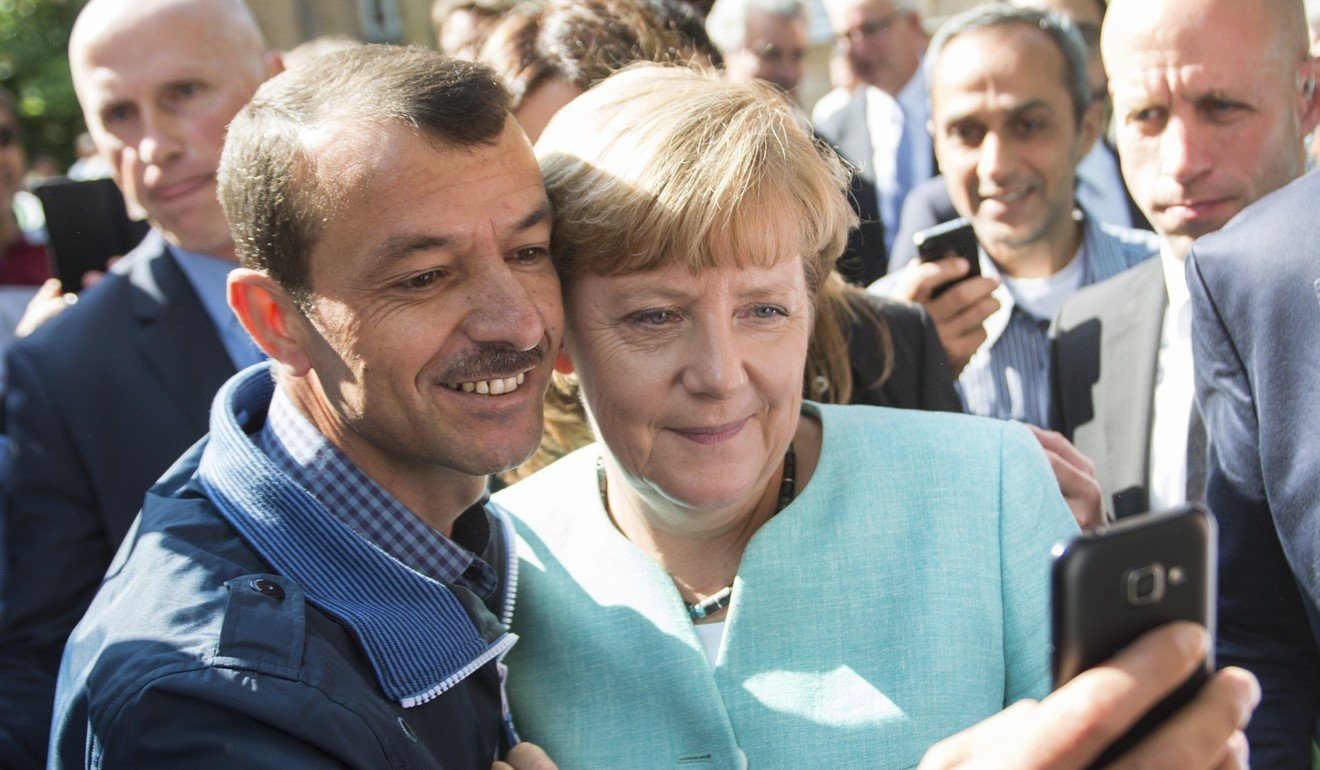
Germany’s Merkel agrees to cap refugee numbers at 200,000 a year in concession to allies
That target looks achievable, given that the number of people arriving in Germany fell from 890,000 in 2015 to about 280,000 last year. A further drop is expected this year.
Two weeks after winning elections with a reduced majority, Chancellor Angela Merkel has agreed to limit Germany’s refugee intake in a bid to unite her conservative camp ahead of tough coalition talks to form a new government.
Merkel’s team huddled with her Bavarian CSU allies led by Horst Seehofer, who has angrily blamed her decision to allow in over one million asylum seekers since 2015 for the rise of the far-right Alternative for Germany (AfD) party.
After 10 hours of closed-door talks Sunday, Merkel’s CDU and the CSU agreed they would aim to cap refugees coming to Europe’s top economy at 200,000 a year, according to a draft paper – a formulation close to a long-time Seehofer demand that Merkel had repeatedly rejected.
That target looks achievable, given that the number of people arriving in Germany fell from 890,000 in 2015 to about 280,000 last year. A further drop is expected this year.
The goal of the meeting was to settle bitter squabbles so the estranged conservative sister parties can again present a united front in upcoming coalition talks with two smaller parties – the pro-business Free Democrats (FDP) and the left-leaning and ecologist Greens.

The CSU’s beleaguered Seehofer – who after a vote drubbing faces internal challengers, and state elections next year – had vowed to close his party’s exposed “right flank” and win back AfD voters, crucially by taking a harder line on refugees and immigration.
In an opening salvo Sunday, the CSU had published a list of demands, including capping refugee numbers, a commitment to a “healthy patriotism” and an acknowledgement that “conservatism is sexy again”.
Merkel had long rejected Seehofer’s signature demand for an iron-cast “upper limit” of 200,000 refugees a year – but late Sunday a deal was shaping up that some commentators dubbed an “upper limit light”.
After hours of talks to square the circle of their competing positions, “a fundamental compromise has been reached”, an alliance source said.
Later, as the marathon talks ended, a party spokesman announced that Merkel and Seehofer would explain the agreement in a joint press conference Monday.
The draft deal includes a target of limiting the refugee intake at 200,000 a year, but with caveats. It also says that asylum seekers would not be turned back before their cases are assessed, in line with the German constitution.

.png?itok=arIb17P0)